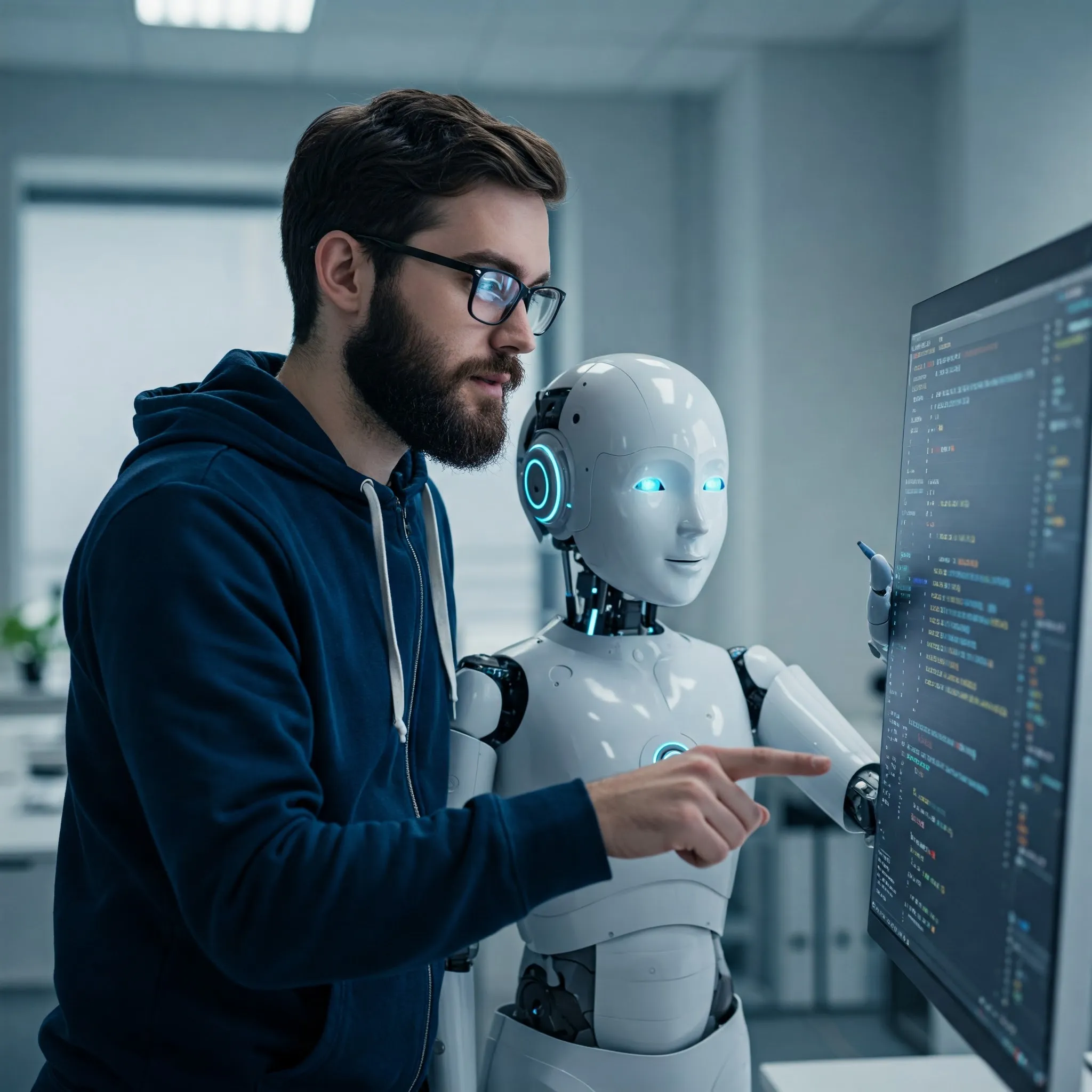
AI Won't Take Your Job (If You Stop Being Just a Programmer)
The other day I was reading a Reddit post where someone was asking if it was reasonable or not for PMs to earn more than the engineers who develop the software. The post spoke somewhat from resentment, and in its text there were some red flags (like programmers at their company losing sleep to get releases out), but it made me think a bit about how far many engineers still are from product development.
I don’t want to turn this into another predictions post, but I think that way of thinking is counterproductive, especially now that AI is changing everything. Knowing how to develop a product is the future. And Product Managers have the advantage.
Maybe you’re not as indispensable as you think
Even today, almost anything that needs development has to go through a process where the people in charge of the technical part are one of the most important components. You could say they are even essential. Many startups that are now large companies were built by founders who knew how to code, dispensing with any other role until the company eventually grew.
As a result, in the industry, we’ve experienced a boom period, forcing companies to develop policies to attract and retain talent. High salaries, stock packages, remote work, and many other perks. And once you’re on the software development treadmill, you feel important and it’s easy to forget that what matters is the product.
We spend hours discussing our code. Whether it’s clean, whether it’s testable, whether this framework is better, or if your architecture is an onion or a cucumber. But what matters to the user is that the product solves their problems. And there are many technical people who forget this part.
The situation is changing rapidly, and we’d better pay attention. AI is making that essential layer no longer essential. The product remains important, but the way we build it is changing radically. AI allows smaller teams, or even individuals with a clear vision, to create functional products with less dependence on a large development team. If you’re one of those who believes that knowing how to code makes you indispensable, I’d reconsider that, because the future will probably prove you wrong.
Think about it. Tools like GitHub Copilot are already suggesting complete code fragments. ChatGPT can generate basic application structures from a description. No-code/low-code platforms are allowing people without technical experience to create functional prototypes. The barrier to entry for building products is being drastically reduced, and the traditional technical part is losing relative weight compared to product vision.
Product Managers already know how to design products
I don’t know if you’ve had the opportunity to work with a good Product Manager (the person who wrote the Reddit post certainly didn’t), but when you meet one, you understand why they’re so valued. Good PMs are true value detection machines. They fight against all odds to get stakeholders, design, and engineering to agree, to bring a feature to life because they believe it will impact end users. They are able to prioritize work to deliver value in very little time, to test hypotheses that can impact users’ daily work, and they are able to extract information from data that would seem disconnected to any other mortal.
But of course, if for you PM means Project Manager, you’ll have the feeling that this role is usually covered by someone who dedicates themselves to prioritizing tasks and asking how you’re doing… with a smiley emoji in every message. But I’m not talking about those people. Real PMs are something else, and it’s normal for them to earn good money.
Today, PMs still have to rely on software developers, but what if that weren’t the case? Developing a product is, like so many things, a team effort, and although I’m sure the technical part will still be very important for a long time, I’m also clear that it will lose weight. What’s truly important is building the product, and not so much the technology behind it. It’s like it’s always been, but much more evident now.
You should learn how to make products
Although knowing how to build products is a very important skill, the most valuable professionals are still those who are able to combine several disciplines into one. PMs who are able to understand how a product works from a technological point of view are infinitely more effective than those who don’t for many reasons: they are able to engage in useful and constructive conversations with developers, to foresee possible technical problems, to understand why a solution is not feasible and needs to be adapted, they are better at evaluating third-party services, identifying points of innovation, etc.
But this versatility can be applied in both directions, so engineers who immerse themselves in the product world, who understand metrics, who speak the language of users, and who use their technical knowledge to enhance the product vision, will be much more valuable than those who can’t do it. Software development is changing at a dizzying speed. AI can be a threat if you’re not paying attention, but also an opportunity that will allow us to build better products faster. Getting stuck in the mindset of “I’m just a programmer, who is given tasks to do and codes them” is dangerous. The future lies in the product mindset, in learning to build something that is valuable and useful for end users. And I think it’s important not to fall behind.